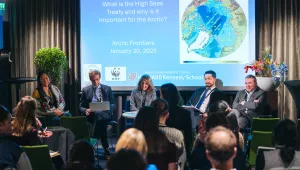Abstract
This paper seeks to summarize briefly some of the major findings emerging from assessments of the potential impacts of ongoing and future climate change. In the spring of 2001, the Stockholm Environment Institute proposed to the Swedish International Development Cooperation Agency (SIDA) that an overview of major vulnerability issues involved with climate change might be useful to a variety of users and interested persons. In this review, the authors accord particular attention to people and regions at highest risk to such changes, particularly those in developing countries. In doing so, they draw heavily upon the three assessments of the Intergovernmental Panel on Climate Change (IPCC) as well as related work undertaken by independent scholars and assessors. It is important to note that although the authors undertook no original research, they have addressed the types of knowledge and approaches required for identifying and assessing highly vulnerable groups and ecosystems.
The review argues that vulnerability assessment is essential for a full analysis of climate-change impacts and for delineating social-justice issues that require attention in any successful international climate-change regime. The importance of complementing emissions reduction with strategies aimed at reducing human vulnerabilities, enlarging coping resources and adaptive capacity, and strengthening resilience is a recurrent theme. The authors conclude by proposing constructive pathways for future efforts aimed at creating societies more resilient to climate change and other global environmental hazards.
The full text of this publication is available via Risk and Vulnerability Programme, Stockholm Environment Institute.



